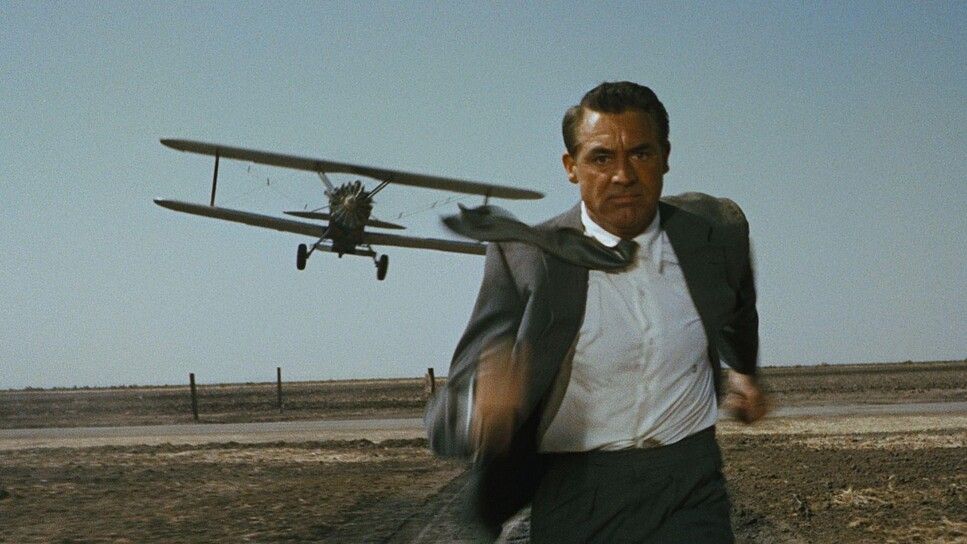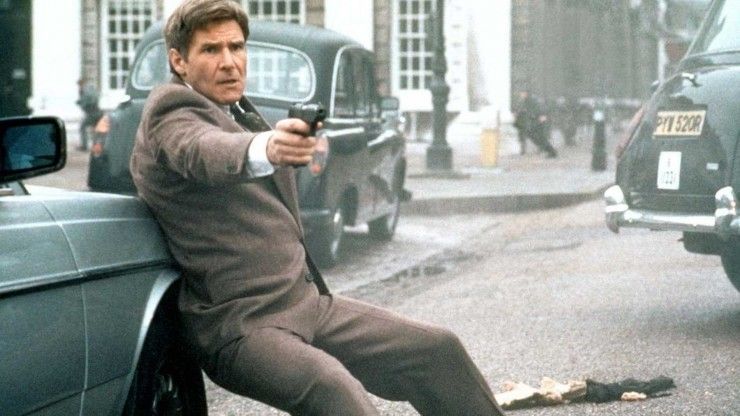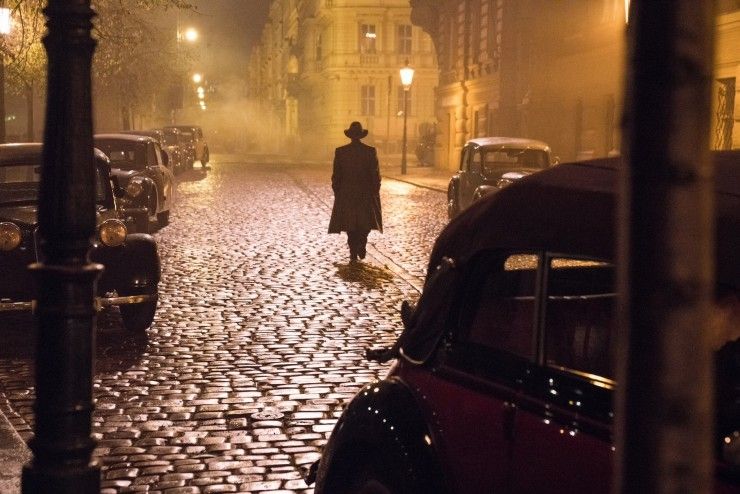
It’s time to decode the spy genre in film and TV.
The spy genre has been a mainstay of popular culture for decades, captivating audiences with tales of secret agents, espionage, and international intrigue. From the suave and debonair James Bond to the gritty and intense Jason Bourne, spy stories have captivated audiences in film, television, literature, and beyond.
But what is it about the spy genre that makes it so enduringly popular?
In this article, we will explore the elements that define the spy genre, examine its history and evolution, and discuss some of its most iconic works. Whether you are a longtime fan of spy stories or just discovering the genre for the first time, join us as we delve into the thrilling world of spies and espionage.
Let’s get spying.
Table of Contents
Unpacking the Spy Genre in Film and TV (Definition and Examples)
As a movie enthusiast, I have always been fascinated by the spy movie genre. From the daring stunts to the heart-pumping action scenes, this genre has always kept me on the edge of my seat.
In this article, I will be sharing with you some of the best movies about spies that are sure to leave you breathless.
The Spy Genre Definition
The spy genre refers to a category of fiction that typically features stories centered around secret agents and their covert operations, often involving espionage, surveillance, and counterintelligence. These stories can be found in a variety of mediums, including film, television, literature, and video games.
The spy genre typically features characters who are highly skilled in combat, intelligence gathering, and other specialized skills, and who work for government agencies or other organizations to protect their countries or interests. They often operate in secrecy and engage in espionage, sabotage, and other covert operations to achieve their objectives.
The spy genre is known for its complex plots, intrigue, and suspense, with stories featuring double-crosses, unexpected twists, and high stakes. It often includes elements of action and adventure, with characters facing danger and high-pressure situations in exotic international locations.

Introduction to the Spy Movie Genre
The spy movie genre has been a popular one for decades. These movies are typically centered around espionage, with the main character being a spy who is tasked with a mission to save the world or to stop a villain from achieving their evil plans. The genre has gone through various changes over the years, with some movies focusing more on the action and others on the suspense and intrigue of espionage.
The spy genre in film and TV typically involves stories centered around secret agents and their clandestine activities, often involving espionage, surveillance, and covert operations. These stories can range from realistic depictions of actual espionage operations to more fantastical, over-the-top action and adventure.
Some common elements of the spy genre include:
-
Secret agents: The main characters in spy stories are often secret agents, skilled in combat, intelligence gathering, and other specialized skills.
-
Espionage: Spies are typically involved in espionage, which involves gathering and analyzing intelligence information for their government or agency.
-
Covert operations: Spies may also engage in covert operations, such as sabotage, assassinations, and other missions that require secrecy and stealth.
-
Technology: Spy stories often feature advanced technology, such as gadgets and surveillance equipment, that help the spies carry out their missions.
-
Intrigue and suspense: The spy genre is known for its complex plots, double-crosses, and unexpected twists, creating a sense of intrigue and suspense for the audience.
-
International settings: Spy stories often take place in exotic and international locations, including major cities, remote islands, and even space.

The Top Spy Movies of All Time
When it comes to the best spy movies of all time, there are several that come to mind.
The History of Spy Movies
Spy movies have been a popular genre for over a century, with roots dating back to the early days of cinema. The genre has evolved, reflecting changes in technology, politics, and popular culture.
One of the earliest spy movies was The Battle of Port Arthur (1904), a silent film produced by the Edison Company that depicted the Russo-Japanese War. The film used a mix of documentary footage and staged scenes to recreate the battle and was one of the first films to use military advisors to ensure accuracy.
During World War I, spy movies became more popular as audiences were drawn to stories of espionage and intrigue. One of the most notable films of this era was The Spiders (1919), a German film that followed an adventurer as he hunted for treasure and encountered spies along the way.
In the 1930s and 1940s, spy movies became more focused on international espionage and the looming threat of war. Films like The 39 Steps (1935) and Saboteur (1942) featured spies and saboteurs operating in Britain and America, respectively, and were popular with audiences seeking escapist entertainment during wartime.
The 1950s saw the rise of the Cold War and a new wave of spy movies that reflected the tension and paranoia of the era. Films like The Man Who Never Was (1956) and The Spy Who Came in from the Cold (1965) were dark and gritty, with complex plots and morally ambiguous characters.
The 1960s and 1970s saw the emergence of the spy blockbuster, with the James Bond franchise and films like The Ipcress File (1965) and The Spy Who Loved Me (1977) dominating the box office. These films featured exotic locations, glamorous gadgets, and charismatic heroes who battled international villains.
The 1980s and 1990s saw a shift toward more realistic and politically charged spy movies, reflecting the changing global landscape. Films like The Hunt for Red October (1990) and Patriot Games (1992) featured complex geopolitical plots and realistic depictions of intelligence work.
In the 21st century, spy movies have continued to evolve, with franchises like Bourne and Mission: Impossible pushing the boundaries of action and spectacle, while films like Tinker Tailor Soldier Spy (2011) and Bridge of Spies (2015) have returned to a more nuanced and cerebral approach to the genre.

Top Spy TV Shows
There have been many popular spy TV shows over the years, but here are some of the top ones:
-
The Americans: This critically acclaimed series follows two Soviet KGB officers posing as an American married couple during the Cold War.
-
Homeland: This series follows CIA officer Carrie Mathison as she tries to stop terrorist attacks while dealing with her own personal demons.
-
Alias: This action-packed series follows Sydney Bristow, a CIA agent who must balance her secret agent life with her personal life.
-
24: This real-time thriller follows Jack Bauer, a counter-terrorist agent who must stop various threats to national security within 24 hours.
-
MI-5: This British series, also known as “Spooks,” follows the members of the British Security Service as they try to stop terrorist threats.
-
Burn Notice: This series follows former CIA agent Michael Westen as he tries to discover why he was “burned” (disavowed) and uses his skills to help people in Miami.
-
Covert Affairs: This series follows CIA operative Annie Walker as she navigates dangerous missions while also trying to maintain a normal life.
-
The Night Manager: This limited series follows former British soldier Jonathan Pine as he infiltrates the inner circle of a dangerous arms dealer.
These are just a few examples of some of the top spy TV shows out there, each with its unique take on the genre.

Elements of a Good Spy Movie
Several elements make a good spy movie:
- The main character should be a spy who is skilled in espionage and has a mission to complete
- There should be a villain who poses a threat to the world or to the main character
- There should be suspense and intrigue that keeps the audience guessing until the end
- There should be action scenes that are thrilling and well-choreographed.
If you are interested in writing spy fiction, there are several techniques that you can use to make your story more engaging:
- You should research the world of espionage to get a better understanding of how spies operate
- You should create a strong protagonist with a clear mission
- You should create a compelling villain who poses a threat to the world or the protagonist
- You should include plenty of suspense and action to keep the reader engaged
What Makes a Great Spy Movie?
Several elements contribute to a good spy movie. Here are some of the most important ones:
-
A compelling protagonist: A good spy movie needs a charismatic and intriguing protagonist who audiences can root for. This character should have a unique backstory, a set of skills that come in handy during their missions and should be complex and flawed in some way.
-
A complex plot: A good spy movie should have a complex and engaging plot that keeps audiences guessing. The story should have plenty of twists and turns, with red herrings, cliffhangers, and surprises that keep viewers on the edge of their seats.
-
High stakes: In a spy movie, the stakes are often life or death. The protagonist should have a lot to lose if they fail, whether it’s their own life, the lives of loved ones, or the fate of an entire country or even the world.
-
Exotic locations: Spy movies often take place in exotic and interesting locations around the world, from bustling cities to remote islands. These locations should be visually interesting and add to the overall atmosphere of the film.
-
Action sequences: Spy movies often have exciting action sequences, including car chases, gunfights, and hand-to-hand combat. These scenes should be well-choreographed and visually stunning, with plenty of tension and suspense.
-
Intriguing villains: The villain is often just as important as the hero in a spy movie. The antagonists should be complex and well-developed, with a unique motivation that makes them more than just a one-dimensional bad guys.
-
Gadgets and technology: Spy movies often feature high-tech gadgets and technology that add to the overall excitement and intrigue of the film. These gadgets should be both visually interesting and believable within the context of the story.
By incorporating these elements into a spy movie, filmmakers can create a thrilling and engaging film that keeps audiences coming back for more.

The Future of the Spy Movie Genre
As the world of espionage continues to evolve, so too does the spy movie genre. With the rise of technology, there are new opportunities for filmmakers to explore the world of espionage in new and exciting ways. It will be interesting to see how the spy movie genre evolves in the coming years.
The spy genre has been a popular genre in literature, film, and television for many years, and it continues to evolve as technology and global events change. Here are some potential trends and predictions for the future of the spy genre:
-
Emphasis on technology: With advancements in technology such as artificial intelligence, facial recognition, and drones, the spy genre may focus more on the use of these tools in intelligence gathering and espionage.
-
Expansion of global locations: The spy genre has traditionally focused on Western locations such as London and Washington DC. However, as the world becomes more globalized, the genre may expand to include locations in Asia, Africa, and South America.
-
More diverse representation: The spy genre has historically been dominated by white male protagonists. However, there is a growing demand for more diverse representation in media, and the spy genre may see more women, people of color, and LGBTQ+ characters taking on lead roles.
-
Blurring of lines between hero and villain: The spy genre has traditionally featured clear-cut heroes and villains. However, in a more complex world, the lines between good and evil may become more blurred. We may see more morally ambiguous protagonists, or even antiheroes, who are not necessarily “good guys” but are still fighting for a cause.
-
Realistic depictions of the intelligence community: In the wake of recent scandals and leaks, there is a growing skepticism of the intelligence community. The spy genre may focus more on the flaws and limitations of these organizations, rather than portraying them as infallible heroes.

Summing Up The Spy Genre in Film and TV
The spy movie genre has been a staple of cinema for decades and for good reason.
With its mix of action, suspense, and intrigue, it is a genre that never fails to entertain. Whether you are new to the genre or a seasoned pro, there is something for everyone in the world of movies about spies. So, grab some popcorn, sit back, and enjoy the ride.
If you haven’t already, check out some of the movies on this list and let us know which one is your favorite!














